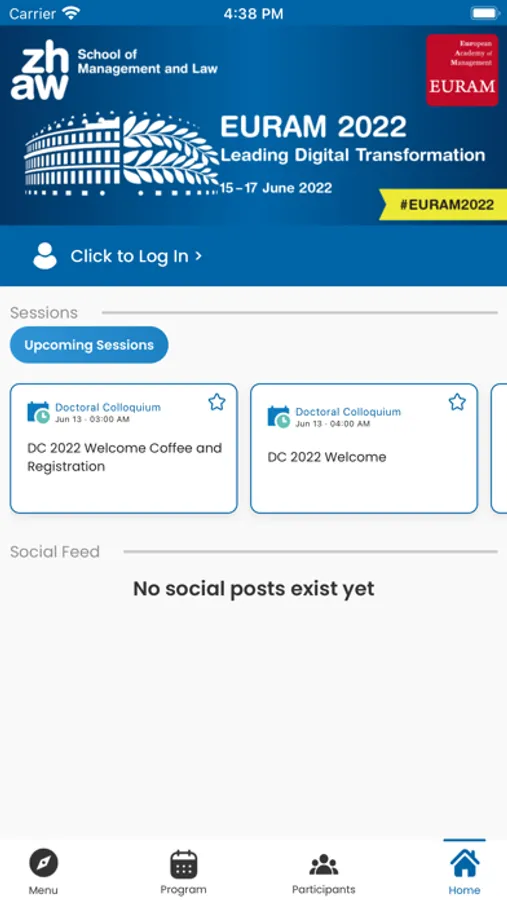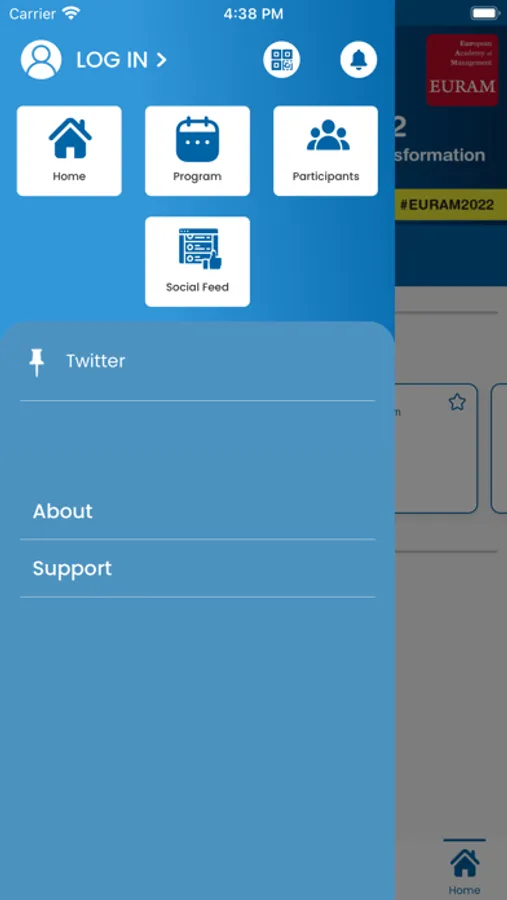About EURAM 2022
EURAM 2022 Theme: Leading the Digital Transformation
“Software is eating the world,” wrote Marc Andreessen in his memorable Wall Street Journal essay in 2011. In the wake of this technological upheaval, organisations are being transformed in fundamental ways across a broad spectrum of industries – from manufacturing, education and retailing to finance and health care.
The ongoing shift towards information technology , along with (big) data, algorithms, and smart analytics, affects all sectors (private, public and non-profit) and is changing how organizations create value. Besides a blurring of industry boundaries, modular business architectures and new definitions of business performance are just some of the consequences of this transformation. To succeed, businesses need to be data-driven and digitally optimised, generate vast amounts of data, and analyse it intelligently.
Changes that have happened since the dawn of the information age in the mid-20th century provide clues about what is to come; organisations failing to recognise the signs can quickly be upended. In particular, data has become a valuable new currency to be mined and exploited, bought and sold – by fair means or foul. Even by collecting and judiciously analysing more data from their own activities, companies develop practices to help them make accurate forecasts and derive sound business decisions.
The pas two years most recent disruption, has impacted not only our private lives but every organisation on the planet, has further accelerated digital transformation to accommodate changing consumer behaviour. In recent months, consumers have become accustomed to online everything – from shopping and learning to banking and entertainment. At the same time, not all businesses have suffered equally, with some benefiting, for example, from being able to reduce their office space. Since everyone will be keen to take advantage of the “new normal,” many of these technology-driven changes are here to stay.
As leaders of digital transformation, managers must find new sources of competitive advantage in these data-driven markets. This means reassessing core competencies and business strategies. Company-wide change management policies may be required to bring in people with fresh skills, integrating them with existing staff, and redefining how the company engages with its stakeholders – from the supply chain to the customer. For organisations, digital transformation is not a matter of implementing a single project but rather a whole series of different projects across all organisational units. To achieve this, they also need the competence to manage change itself.
When considering these complex issues, we encourage conference participants to adopt a interdisciplinary approach by combining insights and strategies from previously distinct fields. We welcome contributions that transcend the boundaries between disciplines and connect academic work and professional practice. Ideally, proposals will come from scholars from various backgrounds, including strategic management, marketing, organisational behaviour, human resources, entrepreneurship, ICT, education, and other related disciplines.
Join leading thinkers and practitioners in Winterthur / Zurich, Switzerland, to explore the opportunities and challenges of digital transformation.
“Software is eating the world,” wrote Marc Andreessen in his memorable Wall Street Journal essay in 2011. In the wake of this technological upheaval, organisations are being transformed in fundamental ways across a broad spectrum of industries – from manufacturing, education and retailing to finance and health care.
The ongoing shift towards information technology , along with (big) data, algorithms, and smart analytics, affects all sectors (private, public and non-profit) and is changing how organizations create value. Besides a blurring of industry boundaries, modular business architectures and new definitions of business performance are just some of the consequences of this transformation. To succeed, businesses need to be data-driven and digitally optimised, generate vast amounts of data, and analyse it intelligently.
Changes that have happened since the dawn of the information age in the mid-20th century provide clues about what is to come; organisations failing to recognise the signs can quickly be upended. In particular, data has become a valuable new currency to be mined and exploited, bought and sold – by fair means or foul. Even by collecting and judiciously analysing more data from their own activities, companies develop practices to help them make accurate forecasts and derive sound business decisions.
The pas two years most recent disruption, has impacted not only our private lives but every organisation on the planet, has further accelerated digital transformation to accommodate changing consumer behaviour. In recent months, consumers have become accustomed to online everything – from shopping and learning to banking and entertainment. At the same time, not all businesses have suffered equally, with some benefiting, for example, from being able to reduce their office space. Since everyone will be keen to take advantage of the “new normal,” many of these technology-driven changes are here to stay.
As leaders of digital transformation, managers must find new sources of competitive advantage in these data-driven markets. This means reassessing core competencies and business strategies. Company-wide change management policies may be required to bring in people with fresh skills, integrating them with existing staff, and redefining how the company engages with its stakeholders – from the supply chain to the customer. For organisations, digital transformation is not a matter of implementing a single project but rather a whole series of different projects across all organisational units. To achieve this, they also need the competence to manage change itself.
When considering these complex issues, we encourage conference participants to adopt a interdisciplinary approach by combining insights and strategies from previously distinct fields. We welcome contributions that transcend the boundaries between disciplines and connect academic work and professional practice. Ideally, proposals will come from scholars from various backgrounds, including strategic management, marketing, organisational behaviour, human resources, entrepreneurship, ICT, education, and other related disciplines.
Join leading thinkers and practitioners in Winterthur / Zurich, Switzerland, to explore the opportunities and challenges of digital transformation.


